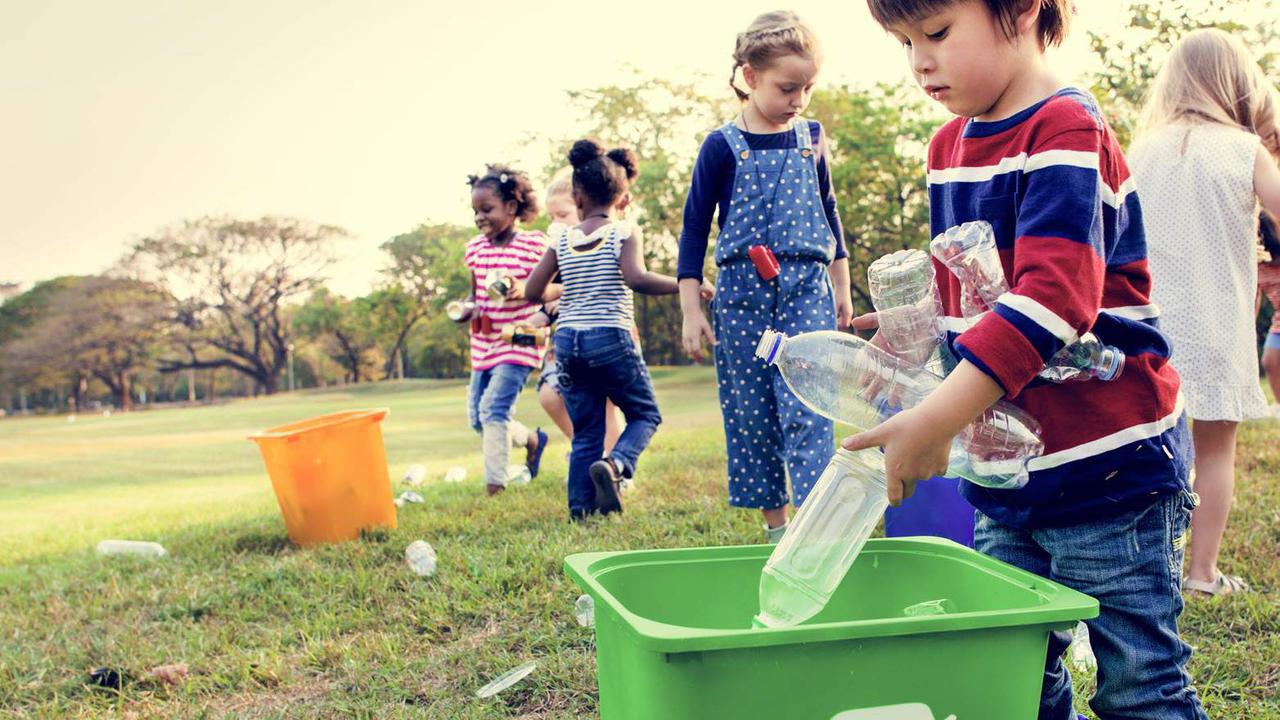
Recycling is an important part of environmental care and building a sustainable future, and since children are the future, it’s important they learn about it. Teaching kids about recycling helps them to learn about caring for and respecting their environment, cleaning, and personal responsibility.
Recycling doesn’t end with recycling plastics and cardboard, but extends to reusing items where possible, repurposing and up-cycling and finding creative ways to reduce waste. From a young age, modelling recycling practices in the home, and giving children increasing opportunities to get involved as they get older, sets up good practices for life - it also inspires kids to find creative solutions to problems, and work collaboratively for the collective good.
What recycling teaches us
There are so many advantages to recycling, including saving money and making a positive impact on the environment, and it also teaches kids valuable life skills and lessons.
Some of these include:
- Reducing waste - reusing items whenever possible, a step away from consumerism and mass production and consumption of goods.
- How your actions affect the people and environment around you- you can briefly explain, in an age-appropriate manner, that things that aren’t recycled go into landfill and take a long time to decompose which isn’t good for the earth or the people and animals who live here.
- Empathy - care for the environment and other people around them
- Understanding of environment/ecosystems
Recycling in the home
Start your child’s recycling journey at home by creating a recycling system for household waste. To set up your system, find your local council recycling guidelines and determine how many recycling containers you’ll need, then label clearly. With young children in the house, it would be helpful to include pictures of the items that can go into that container, so your child can identify what to put in and find the correct container independently - children will find this a fun challenge which will motivate them to take part in cleaning up and recycling.
Watch your large recycling bin being collected on bin day with your child so that they understand the process, and explain where it goes once it’s in the truck. If children can see in a tangible way that you’re helping everything get re-used to reduce waste and landfill, and that if recycling isn’t done properly it can’t be re-used, they will be more likely to adopt recycling practices.
You can also start recycling soft plastics by looking into REDcycle, which is a system for recycling soft plastics that can’t go into general recycling, that can be dropped at many Woolworths and Coles shopping centres across Australia.
Saving 10c cans/bottles
Another way to motivate kids to recycle is by supporting them to start a 10 cent collection box. Help them to identify the small 10c recycling symbol on bottles and cans, and explain that once they’ve collected a boxful you can take it to the Recycling depot to be sorted, and they’ll get 10 cents for each bottle. Soon they’ll be collecting independently, and in the process cleaning up, and learning about money and saving - and they’ll be rewarded with coins (or notes!) that they can add to their piggybank.
As children get older, their involvement with recycling can increase, such that they can try volunteering at recycling depots to see how it gets sorted (this will be guaranteed to help motivate them to put items in the correct recycling container!) and reused.This could potentially spark an interest in this area, and renewable energy careers.
Other recycling ideas
There are unlimited ways to practice recycling in your household, and once you start thinking from this perspective you’ll continue to come up with more sustainable options.
Some ideas for you and the kids to start implementing at home:
- Let your kids help plan a thorough recycling system
- Have your kids be in charge of sorting recycling
- Donate old books, clothes and toys
- Shop at op-shops
- Use recycled materials to make jewellery and art
- Read books together on recycling and how to protect and look after our environment
- Use recyclable paper, tea towels or beeswax wraps instead of plastic wrap to package lunch
- Use stainless steel reusable bottles instead of buying plastic ones
- Make it your child’s job to remember reusable bags for shopping trips
Recycling is important for all of the reasons discussed here, and more - use these recycling ideas to start teaching your kids about recycling, and brainstorm with your kids to see how you can work together towards a cleaner, brighter future for all generations to come.
Many childcare centres also ensure they role-model good recycling so search Toddle today to see if there’s one near you.